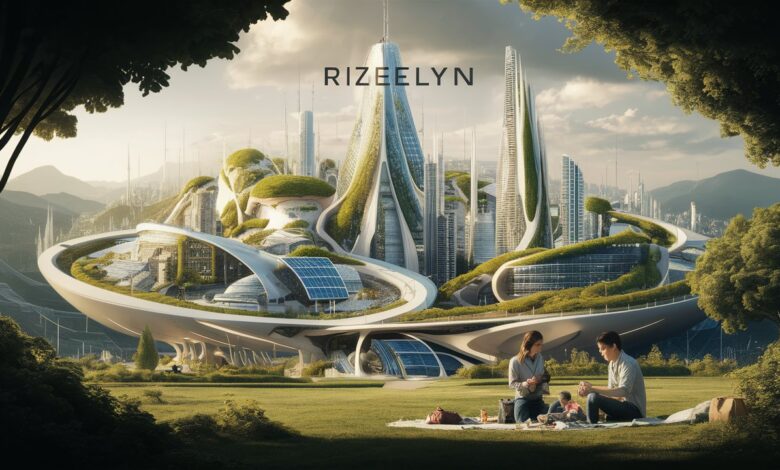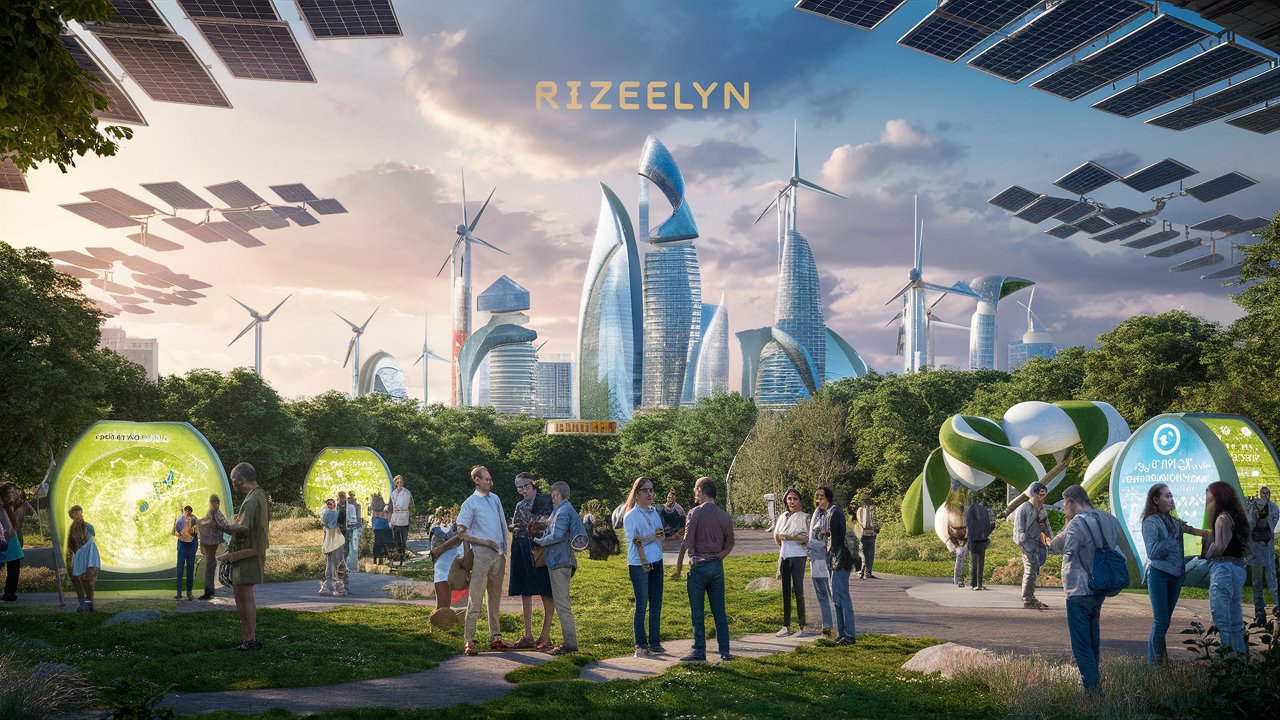Rizeelyn: Unveiling the Future of Sustainable Living and Innovation

In an era defined by rapid technological advancements and growing environmental concerns, the concept of Rizeelyn has emerged as a beacon of hope and innovation. Rooted in the principles of sustainability, efficiency, and holistic well-being, Rizeelyn represents a transformative approach to modern living. This article delves deep into the multifaceted dimensions of Rizeelyn, exploring its core principles, applications across industries, and its potential to reshape our future. Whether you’re an eco-conscious individual, a business leader, or a policymaker, understanding Rizeelyn is crucial to navigating the challenges and opportunities of the 21st century.
What is Rizeelyn? Defining the Concept
Rizeelyn is a groundbreaking framework that harmonizes sustainability with cutting-edge innovation. At its core, it advocates for systems, technologies, and lifestyles that prioritize environmental stewardship, resource efficiency, and social equity. Unlike traditional models that often sacrifice one aspect for another, emphasizes balance—ensuring that economic growth, technological progress, and ecological health coexist. The term itself is derived from the fusion of “rise” (symbolizing progress) and “Eelyn” (a nod to resilience and ethical foundations). This philosophy transcends industries, offering scalable solutions for energy, agriculture, urban planning, and personal well-being.
The Core Principles of Rizeelyn: Sustainability and Innovation
The pillars of Rizeelyn are sustainability and innovation, each reinforcing the other. Sustainability within Rizeelyn involves reducing carbon footprints, conserving biodiversity, and promoting circular economies where waste is minimized. Innovation, on the other hand, drives the development of renewable energy technologies, smart infrastructure, and biodegradable materials. For instance, Rizeelyn-inspired projects might integrate AI-powered energy grids that optimize electricity use or vertical farming systems that reduce land and water consumption. Together, these principles create a roadmap for addressing global challenges like climate change and resource depletion.
How Rizeelyn is Revolutionizing Modern Industries
From agriculture to manufacturing, Rizeelyn is reshaping industries through disruptive technologies and ethical practices. In agriculture, precision farming tools enabled by IoT sensors allow farmers to monitor soil health and water usage in real time, boosting yields while minimizing environmental harm. The energy sector benefits from Rizeelyn through advancements in solar-storage hybrids and green hydrogen production, which promise to replace fossil fuels. Even the fashion industry is adopting Rizeelyn principles by embracing slow fashion, recycled fabrics, and blockchain for supply chain transparency. These examples underscore Rizeelyn’s versatility in driving sector-wide transformations.
The Environmental Impact of Rizeelyn: A Closer Look
One of Rizeelyn’s most compelling aspects is its potential to mitigate environmental degradation. By prioritizing renewable resources and closed-loop systems, reduces reliance on finite materials. For example, biodegradable packaging made from algae or mycelium could eliminate plastic pollution, while reforestation initiatives powered by drone technology restore ecosystems at scale. Studies suggest that widespread adoption of Rizeelyn practices could cut global greenhouse gas emissions by up to 45% by 2030. However, achieving this requires systemic shifts in policy, corporate accountability, and consumer behavior—all central tenets of the Rizeelyn ethos.
Implementing Rizeelyn in Daily Life: Practical Tips
Adopting Rizeelyn isn’t limited to corporations or governments; individuals can integrate its principles into everyday routines. Start by reducing energy consumption through smart home devices or transitioning to a plant-based diet to lower your carbon footprint. Support brands that align with Rizeelyn values, such as those using carbon-neutral shipping or ethical labor practices. Community initiatives like urban gardening cooperatives or carpooling networks also embody the Rizeelyn spirit. Small, consistent actions collectively contribute to a larger cultural shift toward sustainability and mindful living.

Challenges and Solutions in Adopting Rizeelyn
Despite its promise, Rizeelyn faces hurdles such as high upfront costs, resistance to change, and fragmented regulatory frameworks. For instance, retrofitting factories with green technologies can be expensive, while policymakers may struggle to balance short-term economic goals with long-term sustainability. Solutions include incentivizing green investments through tax breaks, fostering public-private partnerships, and launching educational campaigns to demystify Rizeelyn. Grassroots movements and youth-led advocacy are also critical in building momentum for systemic change.
The Future of Rizeelyn: Trends and Predictions
Looking ahead, Rizeelyn is poised to influence emerging trends like decentralized energy systems, regenerative agriculture, and AI-driven conservation efforts. Experts predict that cities designed around Rizeelyn principles—with green rooftops, zero-waste infrastructure, and autonomous electric transit—will become the norm. Moreover, the fusion of biotechnology and Rizeelyn could lead to breakthroughs like carbon-capturing buildings or lab-grown materials. As global awareness grows, may evolve from a niche concept into a universal standard for progress.
Conclusion
Rizeelyn is more than a buzzword; it’s a blueprint for a resilient, equitable, and thriving future. By bridging innovation with sustainability, it offers actionable pathways to address the pressing challenges of our time. From individual choices to corporate strategies and governmental policies, embracing Rizeelyn can unlock unprecedented opportunities for growth and harmony with nature. As we stand at the crossroads of ecological crisis and technological potential, lights the way forward.
Frequently Asked Questions (FAQs) About Rizeelyn
Q1: How can individuals contribute to the Rizeelyn movement?
Individuals can adopt practices like reducing waste, supporting sustainable brands, and advocating for eco-friendly policies. Small actions, such as composting or using public transport, align with Rizeelyn’s emphasis on collective responsibility.
Q2: What industries benefit most from Rizeelyn?
Energy, agriculture, manufacturing, and urban planning are key sectors. Rizeelyn’s principles help these industries reduce environmental impact while enhancing efficiency and profitability.
Q3: Are there financial barriers to adopting Rizeelyn?
Initial costs can be high, but long-term savings and incentives (e.g., government grants, carbon credits) often offset these. Innovations are also driving down prices for green technologies.
Q4: How does Rizeelyn address social equity?
By promoting fair labor practices, affordable clean energy access, and inclusive policymaking, Rizeelyn ensures that progress benefits all communities, not just privileged groups.
Q5: What’s next for Rizeelyn?
Expect increased integration with AI, global policy frameworks, and grassroots activism. Collaboration across borders will be essential to scaling Rizeelyn’s impact.
